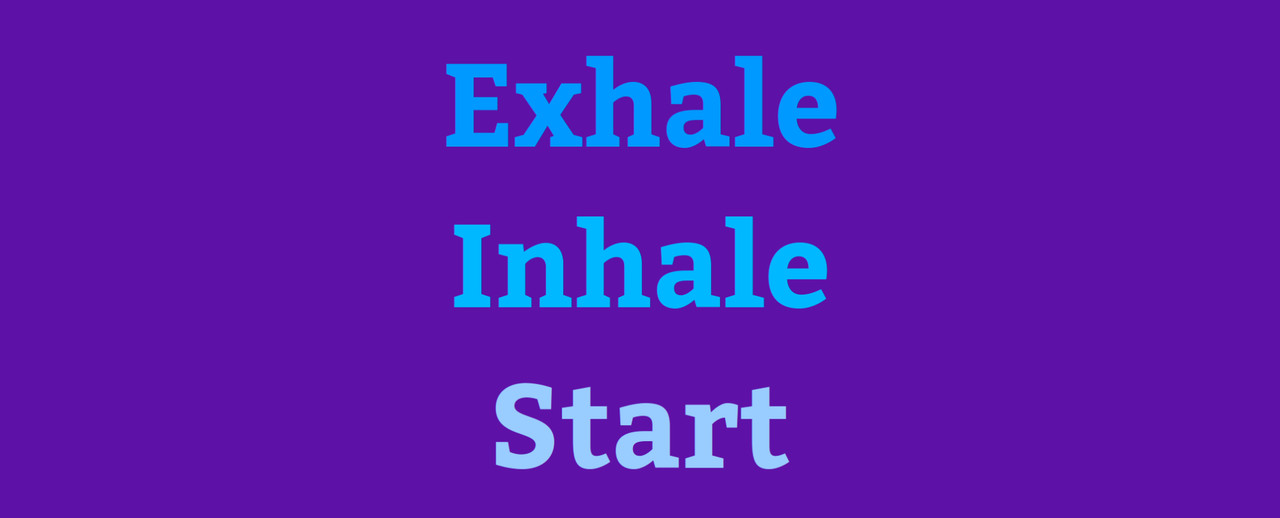
Do it on your next breath
The problem
You know the feeling: you’re about to start something you want to do but is hard to start. It’s usually something like exercise, mopping the floor, starting a difficult conversation with a coworker, and so on. You know what you put off.
Your mind makes excuses not to. Your eyes move around to find distractions. You don’t think of yourself as searching for distractions, but when you find them you let them distract you.
With starting my calisthenics twice daily, getting out of bed and making it in less than a minute, and so on, I’ve worked on physically acting and developing what works. Years ago, in Successful behavior comes from little tricks more than lofty ideals, I wrote how successful people have tricks that make what others consider difficult easy.
I’ve been working on a new starting trick: “Do it on your next breath.”
My candidate solution: Do it on your next breath
Lately I’ve practiced deciding to do something on my next inhalation—that is, the next time I breathe in, I start what I’m trying to start as I breathe out.
I don’t pretend I came up with something new to the world, just that it works.
The practice emerged from starting burpees, which are easy for me to spend minutes standing still, not starting. Also starting sets lifting weights. I’ve counted breaths for holding my L-sits, bridge stretches, and other exercises to hold.
For example, for a while when doing a bridge stretch, I hold it for 6 to 10 breaths. Lately, when lying on the ground about to start, I tell myself
Start on the next breath
and it’s worked.
It works
People I mention it ot tell me about a TED talk on a 5-second rule that’s similar. People really like talking about TED talks they’ve seen and plan to act on. As usual, when I ask if they’ve acted on it, everyone has said he or she hasn’t but really, really means to. I hope you’ve done more than just talk.
I prefer basing a trick on my breath to counting seconds for a few reasons:
- It’s physical activity, which translates to other physical activity.
- I can sense my breath directly. Counting seconds needs a clock.
- It doesn’t require equipment, which can distract me.
- It gives me some leeway since I can hold my breath, but limited.
- It focuses me on my body and not the external world.
So far it’s working well. I’m starting my burpees more regularly, though my one-minute wake-up is also practicing and developing my starting-things skills.
I guess I have a two-pronged approach: tricks and practice, practice, practce. I recommend both.